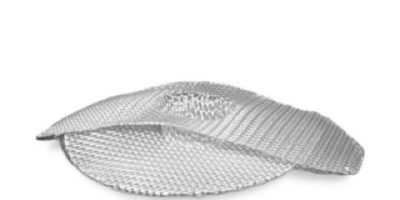Hernia Mesh Complications
Patients may experience various hernia mesh complications after hernia repair surgery. The most common hernia mesh complications are persistent pain, infection, hernia recurrence, adhesion and bowel obstruction. Some patients have also reported instances of mesh failure and migration.
- Medically reviewed by Jessica D. Hess, Ph.D.
- Last update: March 10, 2025
What Are Common Hernia Mesh Complications?
Typically, hernia mesh complications fall under operative and post-operative categories, with operative issues arising from tissue damage during hernia mesh surgery and post-operative complications relating to hernia recurrence, pain from infection or mesh rejection.
Mesh migration and shrinkage are also possible complications of hernia mesh repair. Revision surgery may be necessary in severe cases.
- Adhesion
- Bleeding
- Bowel obstruction
- Bowel perforation
- Chronic pain
- Fever
- Gastrointestinal perforation
- Hernia recurrence
- Hematoma (collection of blood)
- Infection
- Inflammation
- Mesh contraction (shrinkage)
- Mesh erosion
- Mesh failure
- Mesh migration
- Nausea
- Pain
- Recurrence
- Rejection
- Seroma (collection of serous fluid)
- Swelling at the surgical site
The U.S. Food and Drug Administration has looked at 45 studies conducted over 11 years on mesh used to repair hernias. They analyzed these studies to determine the likelihood of different complications that can occur following hernia repair surgery. Depending on the type of complication and the study involved, the risk ranged from 0% to as much as 52.5% for seroma, a lump or mass caused by a buildup of clear fluid in tissue.
Can Hernia Mesh Cause Problems Years Later?
Hernia mesh complications may occur soon after surgery or years later. About one in six patients may need a hernia repair within 10 years of the initial surgery, according to a study published in the Journal of the American Medical Association.
- Hernia recurrence
- Infection
- Pain
- Obstruction
- Adhesion
Hernia mesh repair is a common procedure that has replaced recurrence as the most common complication. A 2022 research letter from the Michigan researchers published in JAMA, a peer-reviewed medical journal, reported no recurrence after three years but roughly 10% after eight years.
“Depending on the type of hernia surgery that was done, the complication will occur in the groin at four years on average — 50%, I should say — at four years,” renowned hernia surgeon Dr. Robert Bendavid told Drugwatch in a 2018 interview.
Many people who have experienced serious complications immediately after hernia surgery — or even years later — are filing hernia mesh lawsuits against the manufacturers of the mesh.
Infection Complications of Hernia Mesh
Infections can occur after hernia repair. Minor hernia mesh infections can be treated with antibiotics, but chronic infections around the mesh and the repaired hernia are difficult to treat.
- Surgical site infection: 0% to 21%
- Mesh infection: 0% to 1.4%
- Abdominal organ space infection: 0.22% to 1.1%
Chronic infections can cause inflammation, fever and flu-like symptoms. To treat deep infections, doctors may perform hernia mesh removal surgery to remove the implanted mesh.
How To Tell If Your Hernia Mesh Failed
Surgical mesh tearing after implantation can cause recurring pain or hernia recurrence. It’s important to monitor your recovery and be aware of symptoms suggesting your hernia mesh may have failed.
Mesh failure refers to the inability of the mesh used in hernia repair to maintain its intended function. This can result either from mechanical failure of the mesh (e.g., it has migrated or contracted), or because of other adverse conditions that make it necessary to remove it (e.g., infection or bowel obstruction). Ultimately, mesh failure can lead to hernia recurrence.
The symptoms associated with mesh failure will depend on the specific cause.
- High fever (101° F or higher)
- Infection
- Excessive pain, bruising or swelling
- Increased redness or drainage from the incision
- Stiffness in the abdomen
- Nausea, vomiting or other flu-like symptoms
- Difficulty urinating or passing gas and stool
People who experience these symptoms should inform their doctors that they had hernia mesh surgery. Hernia mesh complications can be hard to diagnose. Surgery may be needed to confirm if the mesh is damaged.
Hernia Recurrence After Hernia Mesh Surgery
Although recurrence is less common with mesh hernia repair compared to nonmesh, it may occur for several reasons, including flaws in the mesh’s manufacturing design. It can also happen if a patient is too active during hernia mesh surgery recovery, specifically in the first few weeks following surgery.
“After a patient has had surgery to fix their hernia, it can be devastating for that hernia to come back, especially if it means more surgery.”
A 2024 study in Langenbeck’s Archives of Surgery found that recurrence was twice as likely for open hernia repair as it was for laparoscopic surgery.
Further research from the Department of Biomedical Engineering at Stony Brook University found no dramatic clinical differences between various types of materials used to secure hernia mesh.
“In a study comparing permanent tacks, absorbable tacks and synthetic glue, all fixation methods showed no differences in postoperative pain and recurrence,” according to the researchers.
Hernia Mesh Rejection
Mesh rejection can occur when the body tries to expel the implanted foreign material. It is more common among people who had their hernia repaired with synthetic mesh. This is caused by inflammation and scarring around the implant site.
Mesh rejection can manifest as the development of a firm mass, inflammation and sometimes infection. Late mesh rejection can occur months to years after the initial surgery, presenting with symptoms that the mesh may have broken down and needs to be removed surgically.
- Extreme swelling at the surgical site
- Flu-like symptoms
- Redness
- Tenderness or pain
Left untreated, mesh rejection can lead to severe complications such as bowel obstruction, fistula formation and chronic pain.
Hernia Mesh and Bowel Complications
Hernia mesh surgery can cause bowel complications, the most serious of which are bowel obstruction and perforations. If the mesh moves, it can obstruct the bowel, trapping loops of the intestine. Mesh may also cause inflammation of the bowel.
- Bowel Obstruction
- Bowel obstructions are serious and require immediate treatment. Hernia mesh has been recalled because of bowel obstruction and perforation. Symptoms include difficulty passing gas or stool, dehydration, constipation, vomiting, fever or nausea after surgery. Contact your surgeon immediately if you experience such symptoms.
- Bowel Perforation
- Bowel perforation is a rare complication of hernia surgery. Symptoms include nausea, vomiting, severe abdominal pain and abdominal rigidity. It can happen if sutures fail and the mesh punctures into organs.
- Hernia Mesh Adhesion
- Adhesions to hernia mesh can develop a few days after surgery or over a long period and may lead to difficult repairs.
- Hernia Mesh Migration
- The mesh may migrate from the original hernia repair site. Mesh migration can cause complications like fistulas, adhesions and infections. Symptoms include pain, nausea, fever, swelling and weight loss.
Daniel Nigh, an attorney who has filed hernia mesh lawsuits after the devices failed, describes adhesions as a particularly complex complication.
“Hernia mesh itself can actually stick to various organs, one being the bowel, maybe one where it obstructs the bowel,” Nigh told Drugwatch. “And so now you have to have a revision surgery to unobstruct the bowel.”
Diagnosing and Treating Hernia Mesh Complications
Diagnosing hernia mesh complications can be challenging and may require X-rays or CT scans.
You should expect discomfort and tenderness after a hernia mesh procedure. However, prolonged pain, stabbing pain or swelling may indicate a complication.
Doctors can treat minor adhesions and fistulas with or without surgery. Nonsurgical treatments include antimicrobials, anti-inflammatory drugs and pain relievers. Severe complications may require follow-up surgery to repair or remove the mesh.
Calling this number connects you with a Drugwatch.com representative. We will direct you to one of our trusted legal partners for a free case review.
Drugwatch.com's trusted legal partners support the organization's mission to keep people safe from dangerous drugs and medical devices. For more information, visit our partners page.




